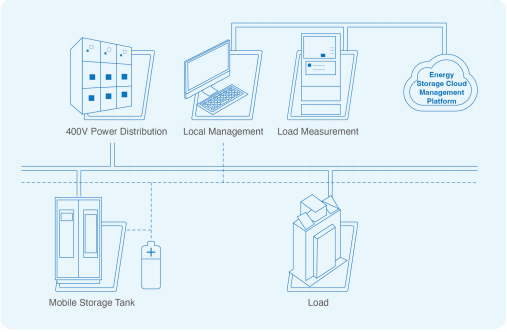
Oct . 19, 2024 10:55 Back to list
Definition of Energy Management Systems for Manufacturers and Their Importance in Efficiency
Understanding Energy Management Systems and Their Role in Modern Manufacturing
In today’s increasingly energy-conscious world, manufacturers are continuously seeking ways to enhance efficiency and reduce costs. One of the most effective strategies they employ is the implementation of Energy Management Systems (EnMS). An EnMS is a systematic approach to managing energy usage, focusing on continuous improvement and sustainability. This article delves into the definition of energy management systems, their key components, benefits, and the role of manufacturers in their development and implementation.
What is an Energy Management System?
An Energy Management System is a framework used by organizations to manage and improve energy performance. It encompasses a combination of processes, policies, and technologies to monitor, control, and optimize energy consumption. The primary objective of an EnMS is to reduce energy costs, improve operational efficiency, and minimize environmental impact. It integrates various aspects of energy use, from procurement and consumption analysis to employee training and maintenance practices.
The most widely recognized standard for energy management is ISO 50001, which provides organizations with a structured approach to developing and implementing an EnMS. This standard emphasizes the importance of leadership engagement, ongoing assessment of energy performance, and the establishment of measurable goals to drive improvements.
Key Components of Energy Management Systems
There are several key components that constitute an effective Energy Management System
1. Energy Policy Developing a clear energy policy is the foundation of an EnMS. This policy outlines the organization's commitment to energy efficiency, sustainability, and continuous improvement.
2. Energy Planning This involves assessing current energy consumption, identifying significant energy use areas, and setting realistic performance objectives and targets.
3. Implementation and Operation Effective communication, training, and awareness programs are crucial for embedding energy management practices within the organization. This includes maintaining operational controls, such as machinery and equipment, to enhance energy efficiency.
4. Monitoring and Measurement Regular monitoring of energy performance against established objectives is essential. Implementing metering and monitoring systems allows for real-time data collection and analysis of energy consumption patterns.
energy management system definition manufacturers

5. Review and Improvement A critical aspect of an EnMS is the commitment to continuous improvement. This involves conducting regular audits, reviews, and assessments to identify areas for further enhancement.
Benefits of Implementing an Energy Management System
Manufacturers that adopt Energy Management Systems enjoy a myriad of benefits. Firstly, an EnMS leads to significant cost savings through optimized energy consumption and reduced waste. Energy-efficient operations lower utility bills, which can enhance overall profitability.
Moreover, implementing an EnMS reinforces corporate responsibility and sustainability. Companies that actively manage their energy usage contribute to reducing their carbon footprint, thus aligning with global sustainability goals and fostering a positive brand image among environmentally conscious consumers.
Additionally, organizations that adopt energy management practices often experience improvements in operational efficiency. By streamlining energy use, manufacturers can enhance production processes and minimize downtime, ultimately leading to increased productivity.
The Role of Manufacturers in Developing Energy Management Systems
Manufacturers play a pivotal role in the development and implementation of Energy Management Systems. They must ensure that their EnMS is tailored to their specific operational needs and aligned with industry standards. This involves collaboration with energy management consultants, technology providers, and regulatory bodies to stay updated with the latest innovations and best practices.
Furthermore, fostering a culture of energy awareness among employees is vital. Manufacturers must invest in training and educational programs that encourage staff to take an active role in energy efficiency initiatives. Employee engagement not only enhances the effectiveness of an EnMS but also cultivates a workplace environment that values sustainability.
Conclusion
In conclusion, Energy Management Systems mark a transformative step for manufacturers aiming to improve energy efficiency and sustainability. By understanding the definition, components, and benefits of an EnMS, manufacturers can navigate the path toward more sustainable practices. Ultimately, an effective energy management system not only drives economic benefits but also fosters a commitment to environmental stewardship, benefiting both the organization and the planet.
-
Advanced AI Energy Management with GPT-4 Turbo
NewsAug.02,2025
-
AI-Powered EMS with GPT-4-Turbo | Efficiency Boost
NewsAug.01,2025
-
Optimized Storage System for GPT-4-Turbo | High Performance
NewsJul.31,2025
-
AI Energy Management System w/ GPT-4 Turbo Efficiency
NewsJul.31,2025
-
High-Performance Energy Storage System for Reliable Power Solutions
NewsJul.30,2025
-
Advanced EMS Solutions for Energy Management System & Storage Battery Companies
NewsJul.29,2025























